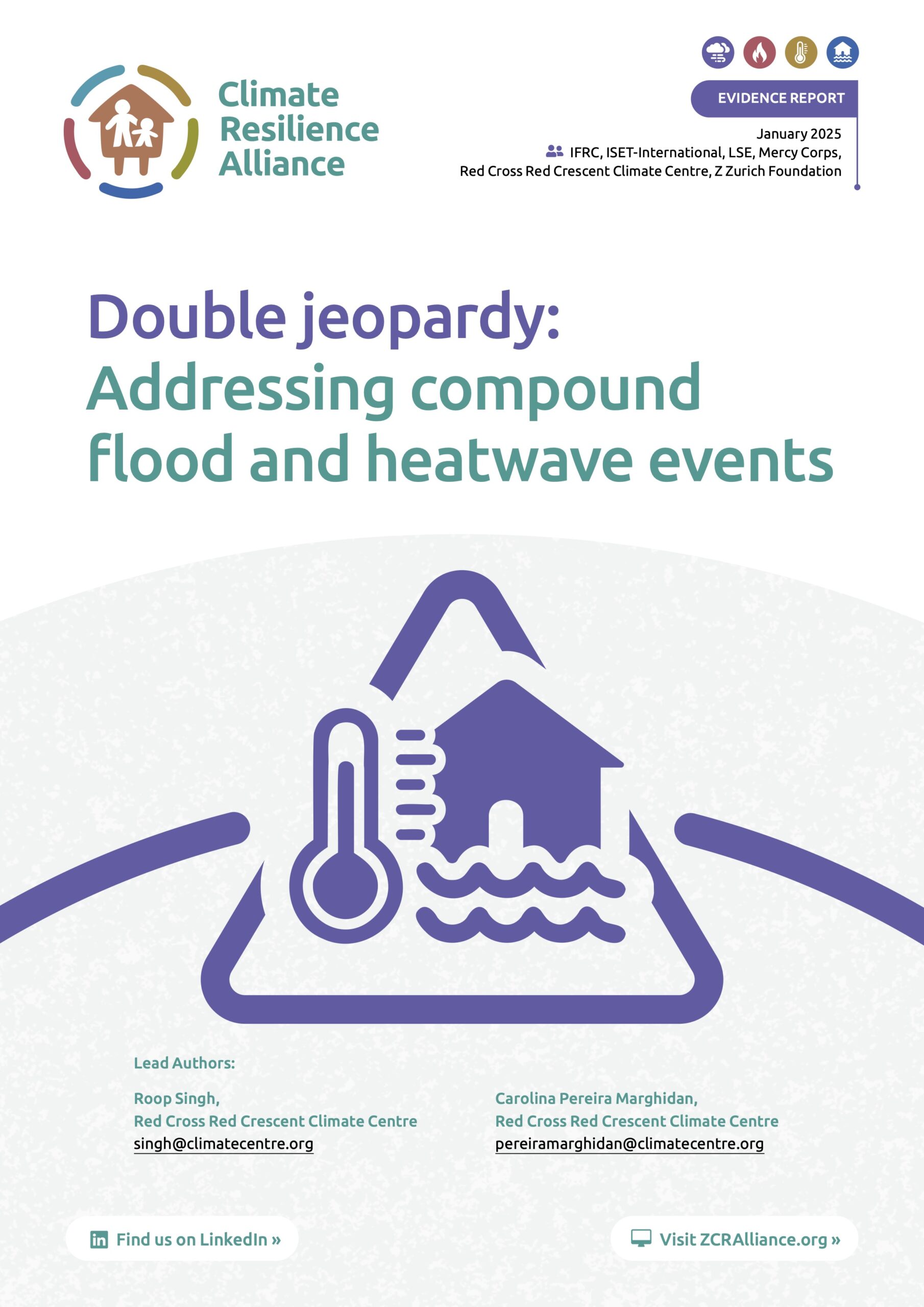Double Jeopardy: Addressing compound flood and heatwave events
Organization: IFRC, ISET-International, LSE, Mercy Corps, Red Cross Red Crescent Climate Centre, Z Zurich Foundation
Lead Researchers: Roop Singh & Carolina Pereira Marghidan
Year: 2025

This paper explores the escalating risks of compound heatwave and flood events, a growing phenomenon highly accelerated by climate change and urbanization. These hazards, occurring in close succession or simultaneously, amplify impacts on human health, infrastructure, ecosystems, and livelihoods, often surpassing the damage caused by each event individually. Using current scientific research and case studies, the paper examines the mechanisms driving these events, their increasing frequency, and the implications for climate resilience practitioners. Three primary forms of compound events are explored: heatwaves followed by floods, floods followed by heatwaves, and simultaneous occurrences of both. Urbanization exacerbates these risks through the urban heat island effect, impervious surfaces, and inadequate drainage systems, increasing exposure and vulnerability. Case studies such as Hurricane Beryl in Texas and Pakistan’s 2022 floods illustrate how cascading events disrupt essential infrastructure, overwhelm emergency responses, and deepen socioeconomic inequities. Tailored for practitioners, this paper provides actionable solutions with co-benefits for compound flood and heat wave events, such as nature-based interventions and resilient urban planning. Recommendations include expanding urban green spaces, restoring wetlands, implementing bioswales, and adopting climate-resilient infrastructure. The authors also highlight the importance of integrated risk assessments, multi-hazard early warning systems, and community-based adaptation measures. Cross-sectoral collaboration among governments, private sector actors, and communities is essential to implement these strategies effectively. This work is coauthored by the Red Cross Red Crescent Climate Centre, Z Zurich Foundation, Institute for Social and Environmental Transition–International (ISET-International), International Federation of Red Cross and Red Crescent Societies (IFRC), London School of Economics and Political Sciences (LSE) and Mercy Corps as part of the Zurich Climate Resilience Alliance (the Alliance). The Alliance is a multi-sectoral partnership committed to enhancing community resilience to climate hazards. By providing evidence-based insights and practical recommendations, the paper calls on practitioners to adopt holistic, equity-focused strategies that address the dual threats of heatwaves and floods, fostering sustainable and adaptive urban environments in the face of escalating climate challenges.